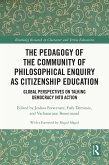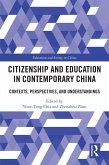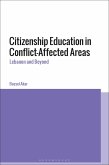Rethinking Youth Citizenship After the Age of Entitlement provides a primer for exploring hard questions about how young people understand, experience and enact their citizenship in uncertain times and about their senses of membership and belonging. It examines how familiar modes of exclusion are compounded by punitive youth policies in ways that are concealed by neoliberal discourses. It considers the role of key institutions in constructing young people's citizenship and looks at the ways in which some young people are opting out of established enactments of citizenship while creating new ones. Critically reflecting on recent scholarly interest in the geographical, relational, affective and temporal dimensions of young people's experiences of citizenship, it also reinvigorates the discussion about citizenship rights and entitlements, and what these might mean for young people.
The book draws on global research and theories of citizenship but has a particular focus on Australia, which provides a unique example of a country that has fared well economically yet is mimicking the austerity measures of the United Kingdom and Europe. It concludes with an argument for a rethinking of citizenship which recognises young people's rights as citizens and the ways in which these interact with their lived experience at a time that has been characterised as 'the end of the age of entitlement'.
The book draws on global research and theories of citizenship but has a particular focus on Australia, which provides a unique example of a country that has fared well economically yet is mimicking the austerity measures of the United Kingdom and Europe. It concludes with an argument for a rethinking of citizenship which recognises young people's rights as citizens and the ways in which these interact with their lived experience at a time that has been characterised as 'the end of the age of entitlement'.









